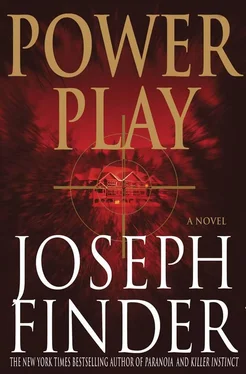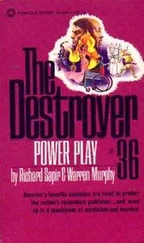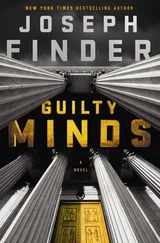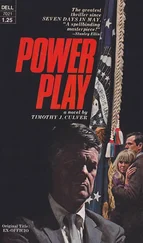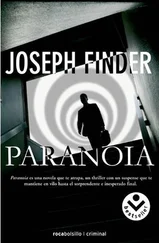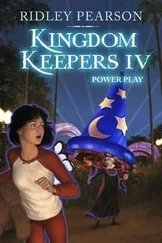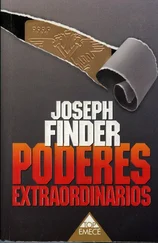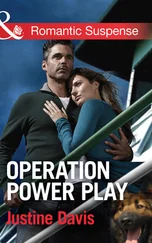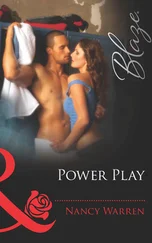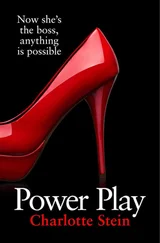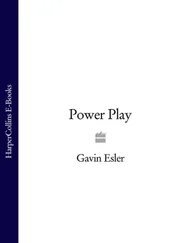"You know it," someone said.
"It's not too late to escape," someone else said.
"Not too late to escape, hmm?" she repeated. Her smile had grown thin. "Easier said than done. It's a long swim to the nearest airport."
She was making a good show of pretending to enjoy the testosterone-rich rowdiness, but at the same time you could sense the steel. As if she were willing to be a good sport, but there was a point beyond which she wouldn't go. You really didn't want to push this woman too far. She also looked as if she wanted to get the hell out of there. Back to corporate headquarters, back to her big office where she could sit behind her big desk and receive important visitors and be the CEO instead of one of two sorority girls at a frat party.
"And believe me, I've thought about it," she said. "Especially after hearing about the courses that Bo's about to take us through."
She looked across the room toward a giant of a man with a shiny-bald head and a big black mustache. That had to be Bo Lampack, the team-building coordinator. He stood in the back corner with his arms folded across a great broad chest. His shoulders were the size of ham hocks. He looked like a cross between G. Gordon Liddy and Mr. Clean, only without the gold earring.
Lampack gave a conspiratorial grin. "We haven't lost anyone." He paused for dramatic effect, then added, "Yet."
A burst of raucous laughter, laced with cheers.
"What about Gandle?" Kevin Bross shouted.
"Come to think of it," Lampack said, "I don't see Gandle here this year."
More loud laughter. Larry Gandle was the old CFO, whom Cheryl had replaced with Ron Slattery. He'd gotten some huge golden parachute early retirement package and moved to Florida.
Cheryl held up her hands to quiet everyone down. "Well, we'll hear more from Bo at dinner. And tomorrow, you guys are all going to see that we women can keep up with men-not just in the office but on the ropes as well." She looked around, then held up an index finger. "I'm not just the first outsider to lead Hammond Aerospace, but I'm the first woman. And I know that makes some of you guys a little uncomfortable. I understand that. Change is always difficult. But that's one of the…challenges…I hope we'll get a chance to work through this weekend."
The room had gone quiet but for a few pockets of restless stirring. Both Bodine and Barlow stood watching her in identical poses: their right arms folded across their bellies, supporting their left elbows. Their left hands clutched tumblers of bourbon. Like babies holding bottles of formula.
"If not," she said, "I hope you're all strong swimmers." She looked around for several seconds. No one laughed. So she continued, "You know, they say a general without an army is nothing. I need each and every one of you in there pulling-not for me, but for this great company. Let me remind you that the symbol of the Hammond Aerospace Corporation is the lion. And with your help, together we're going to make that lion roar."
Lummis elbowed Upton Barlow so hard that Barlow dropped his glass of bourbon. It crashed against the hard plank floor and shattered into a hundred shards.
A few minutes later, as we all filed into the great room for dinner, Hank Bodine put a hand on my shoulder. Upton Barlow was at his side. "So you have some information for me," Bodine said. He'd cooled off some, though his tone was curt.
"I'm pretty sure I've figured out why the E-336 crashed," I said.
"Well, let's hear it." His hand came off my shoulder.
Barlow's raisin eyes regarded me curiously.
"Maybe we can talk in private, later on," I said.
"Nonsense. We have no secrets. Let's hear it." To Barlow, Bodine said, "Jake here says he knows why that Eurospatiale plane wiped out at Le Bourget." There was something smug, almost defiant in his tone, as if he didn't believe me, or was daring me, or something.
I paused. Cheryl and Ali were approaching from behind Bodine. "How about later?" I said.
"How about now?" said Cheryl. "I'd like to hear all about it." She extended her hand. "I don't believe we've met, actually. I'm Cheryl Tobin. Will you sit next to me at dinner?"
Bodine gave me a look of pure, unadulterated loathing.
A long table had been set up in a bay of the great room that overlooked the ocean. Night had fallen, and the windowpanes had become polished obsidian, reflecting the amber glow of the room. You couldn't see the ocean, but you could hear the waves of Rivers Inlet lapping gently against the shore.
Cheryl Tobin was seated at the head of the table. I was at her immediate left. On my other side was Upton Barlow, then Hugo Lummis, whose potbelly was so big he had to push his chair way back from the table to make room for it.
Lummis was telling some long-winded anecdote to Barlow. Meanwhile, Cheryl was talking with her CFO, Ron Slattery. His bald head shone: oddly vulnerable, a baby's. He was saying, "I thought your speech was absolutely masterful."
The table was covered with a stiff white linen cloth and set with expensive-looking gold-rimmed china and gleaming silverware. An armada of cut-glass wine and water glasses. Next to each place setting was a narrow printed menu listing six courses. A white linen napkin, folded into a fan, on each plate. A little card with each person's name written in calligraphy.
There was nothing spontaneous about Cheryl's decision to seat me next to her. If she wanted me to spy for her, I really didn't get it.
I buttered a hot, crusty dinner roll that was studded with olives, and wolfed it down.
Hank Bodine was down near my end of the table, but in no-man's-land, if you believed in close readings of dinner-table placement. Ali was on the other side, between Kevin Bross and Clive Rylance. Both Alpha Males seemed to be putting the moves on her, double-teaming her. She smiled politely. I caught her eye, and she gave me a look that conveyed a lot: amusement, embarrassment, maybe even a secret enjoyment.
A couple of Mexican waiters ladled lobster bisque into every-one's bowls. Another waiter poured a French white wine. I took a sip. It tasted fine to me. Not that I had any idea.
Barlow took a sip, grunted in satisfaction, and pursed his moist red lips. He said out of the side of his mouth, "I don't have my reading glasses-this a Meursault or a Sancerre?"
I shrugged. "White wine, I think."
"Guess you're more the jug-wine-with-a-screwtop type."
"Me? Not at all. I like the gallon boxes, actually." Might as well give him what he wanted to hear.
He laughed politely, turned away.
Ron Slattery was keeping up his line of sock-puppet patter. "Well, you've got the entire division running scared, and that's a good thing." His mouth was a thin slash, barely any lips. The small fringe around his shiny dome was shaved close. His heavy black-framed eyeglasses might have looked funky, ironic, on someone like Zoл, but on him they were just nerdy.
"Not too scared, I hope," Cheryl said. "Too much fear is counterproductive."
"Don't forget, a jet won't fly unless its fuel is under pressure and at high temperature," he replied.
"Ah, but without a cooling system, you get parts failure, right?"
"Good point," he chortled.
Then she turned to me, raised her voice. "Speaking of which, why'd it crash?"
How had she put it before? I know all about it, believe me. She knew the reason; she had to. But she wanted me to tell her in public, in front of everyone else.
"An inboard flap ripped off the wing at cruise speed and hit the fuselage."
"Explain, please." She really didn't need to speak so loudly. Her eyes glittered.
"A three-hundred-pound projectile flying at three hundred miles an hour is going to do some serious damage."
"Obviously." Exasperated. "But why'd it rip off?"
Читать дальше
